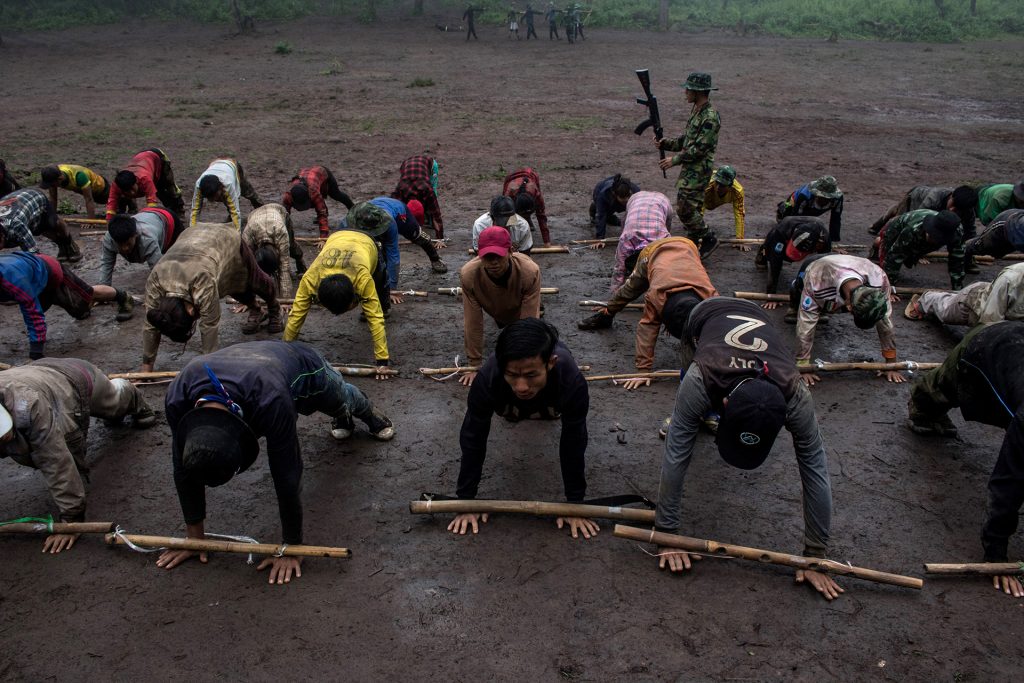Data Matters No. 27
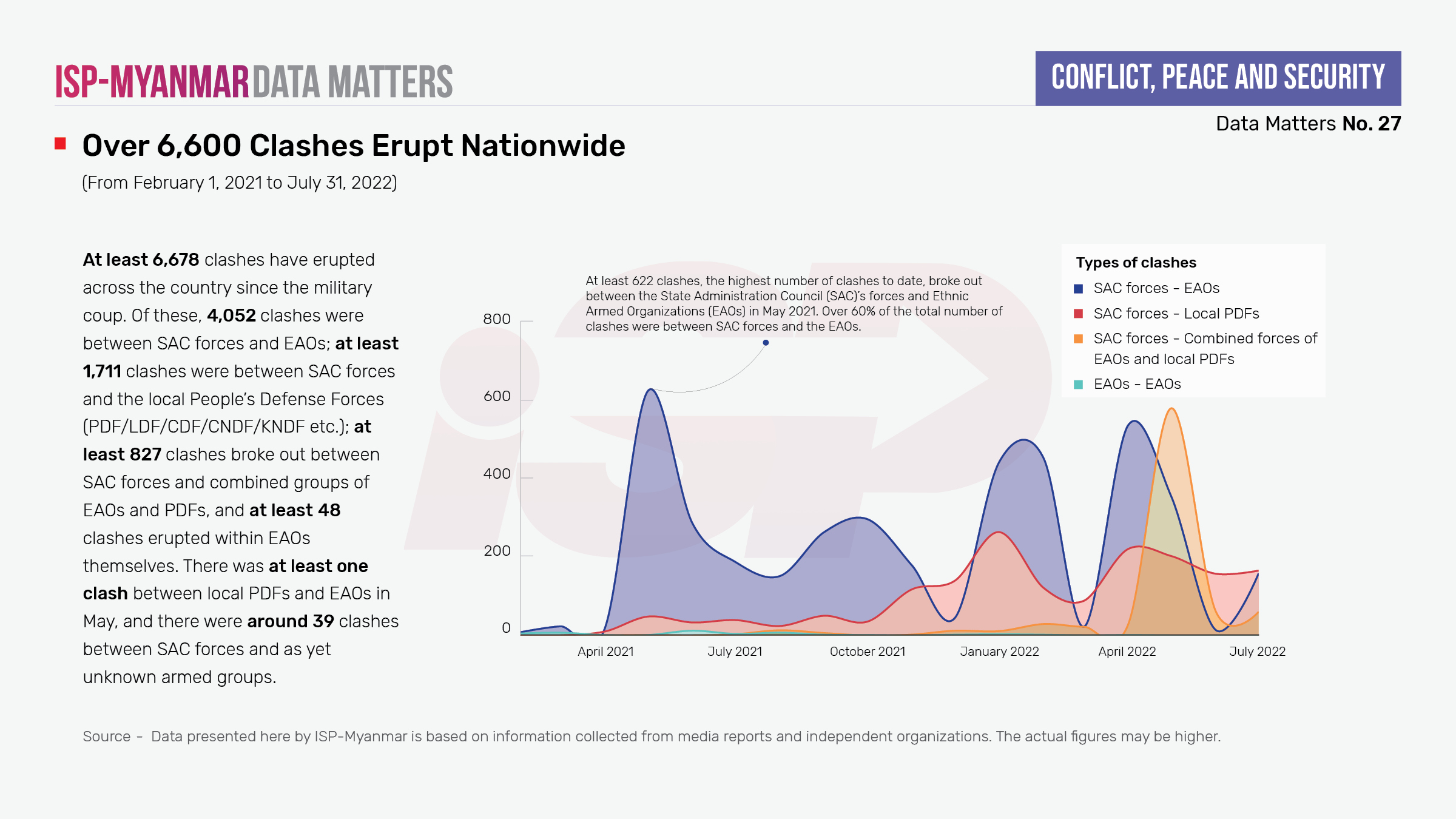
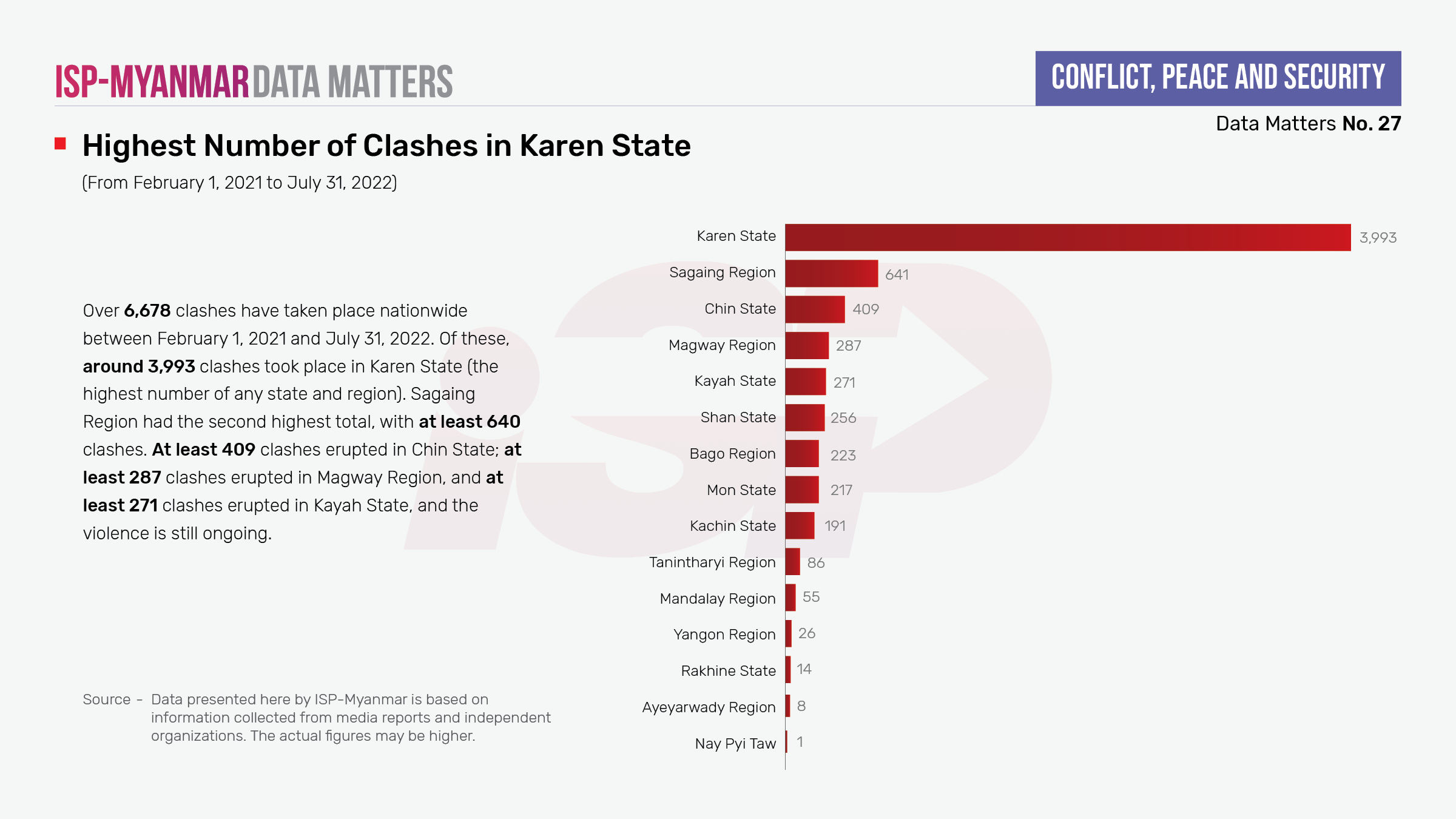
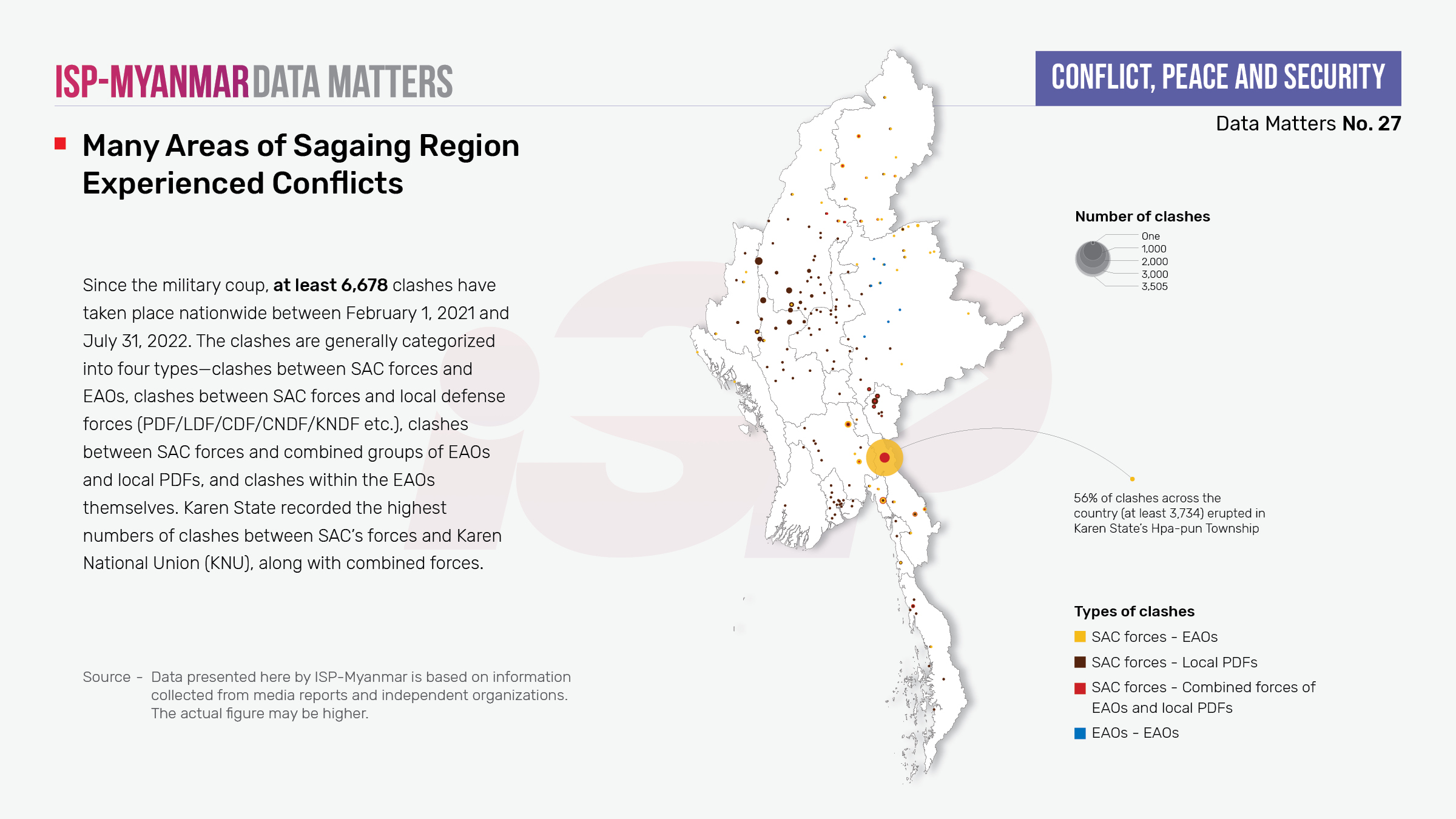
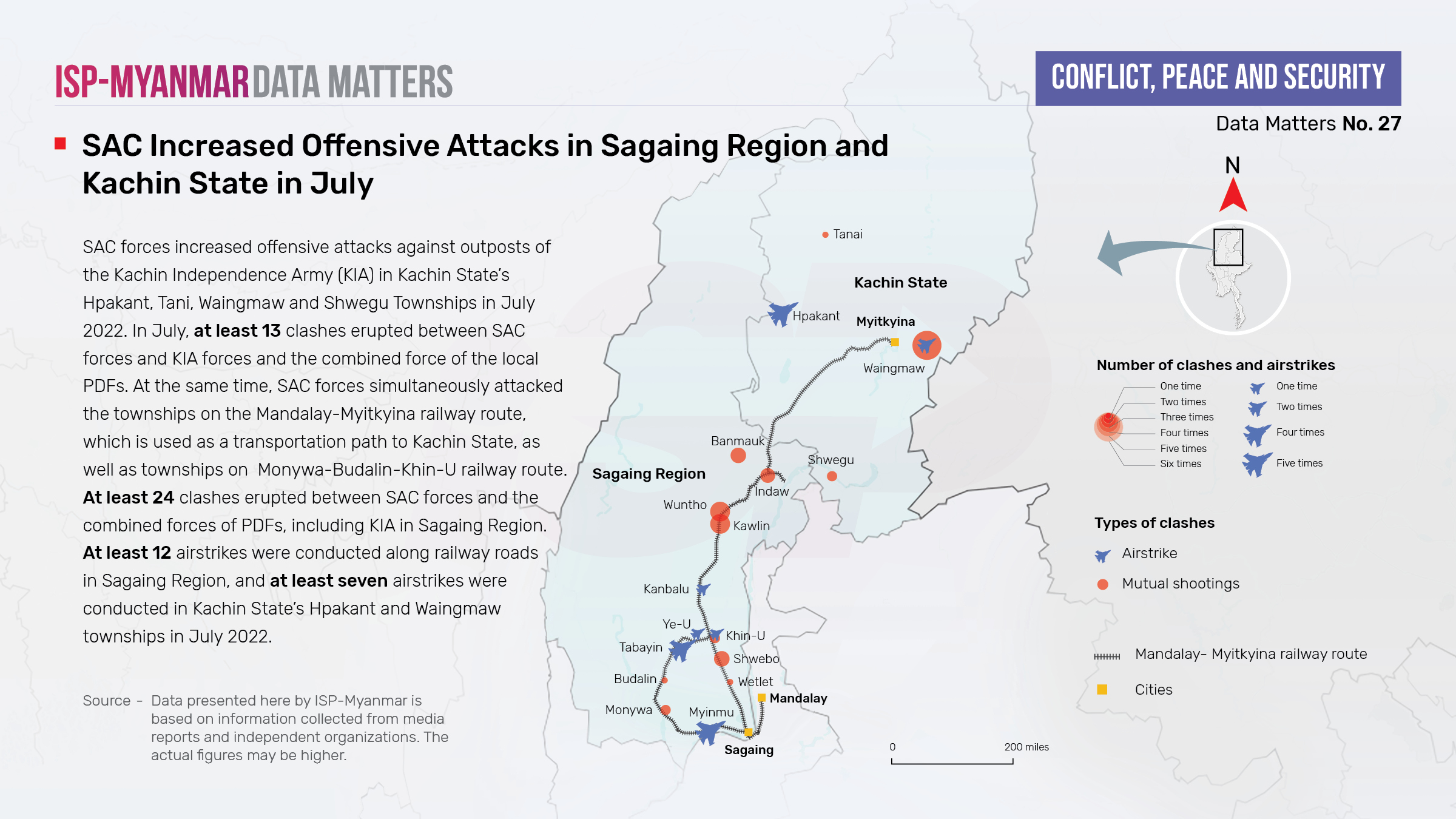
At least 6,678 clashes have erupted across the country since the military coup. Of these, 4,052 clashes were between SAC forces and EAOs; at least 1,711 clashes were between SAC forces and the local People’s Defense Forces (PDF/LDF/CDF/CNDF/KNDF etc.); at least 827 clashes broke out between SAC forces and combined groups of EAOs and PDFs, and at least 48 clashes erupted within EAOs themselves. There was at least one clash between local PDFs and EAOs in May and there were around 39 clashes between SAC forces and as yet unknown armed groups.
Armed clashes are taking place nationwide with the highest intensity in Karen State and Sagaing Region. According to the data compiled by ISP-Myanmar, around 3,993 clashes took place in Karen State, which is around 59% of all clashes across the country. Sagaing Region had the second highest total, with at least 640 clashes.
SAC forces increased offensive attacks against outposts of the Kachin Independence Army (KIA) in Kachin State’s Hpakant, Tani, Waingmaw and Shwegu Townships in July 2022. At the same time, SAC forces simultaneously attacked the townships on the Mandalay-Myitkyina railway route, which is used as a transportation path to Kachin State, as well as townships on the Monywa-Budalin-Khin-U railway route. In these areas, at least 37 took place between the SAC forces and the combined forces of KIA and PDFs, and at least 19 airstrikes were conducted by the SAC in July 2022.
∎ Why does it matter?
By looking at the number of civilian fatalities and injuries, how they were killed and wounded, and the number of people displaced by fighting involving SAC’s forces and EAOs, or within EAOs themselves, it is possible to examine whether or not armed forces have committed human rights violations from the perspective of transitional justice. In addition, by studying the post-coup situation, further research can be conducted to examine whether there has been a change in conditions related to Myanmar’s peace process.
∎ Other relevant readings
On-the-ground reports from ethnic news organizations and other independent media groups provide regular updates about conflict situations, their impact, and the collateral damage in the aftermath of the military coup. These include reports of renewed fighting in ethnic areas, civilian fatalities, and rising refugee and IDP issues on the ground. In addition, records and reports by United Nations organizations such as the United Nations Office for the Coordination of Humanitarian Affairs (UNOCHA), and other independent local and foreign organizations also provide information about the ongoing conflict situation in Myanmar.

